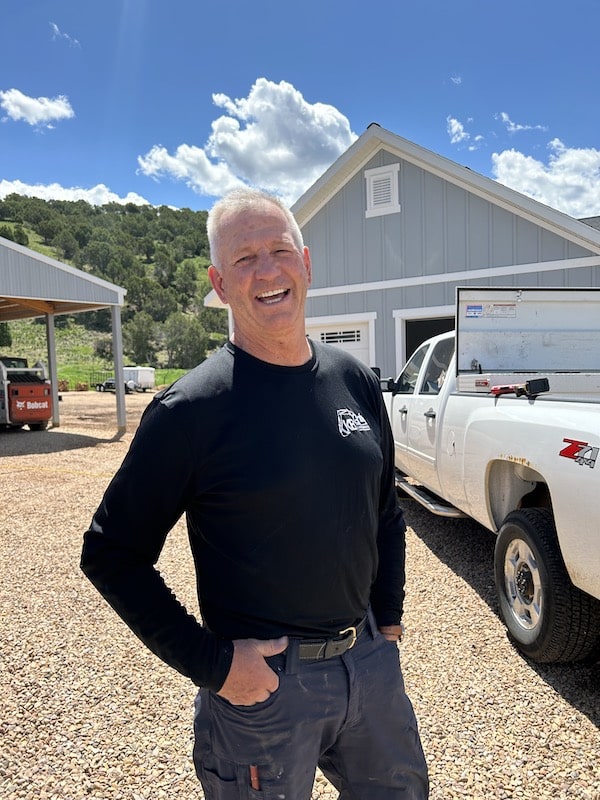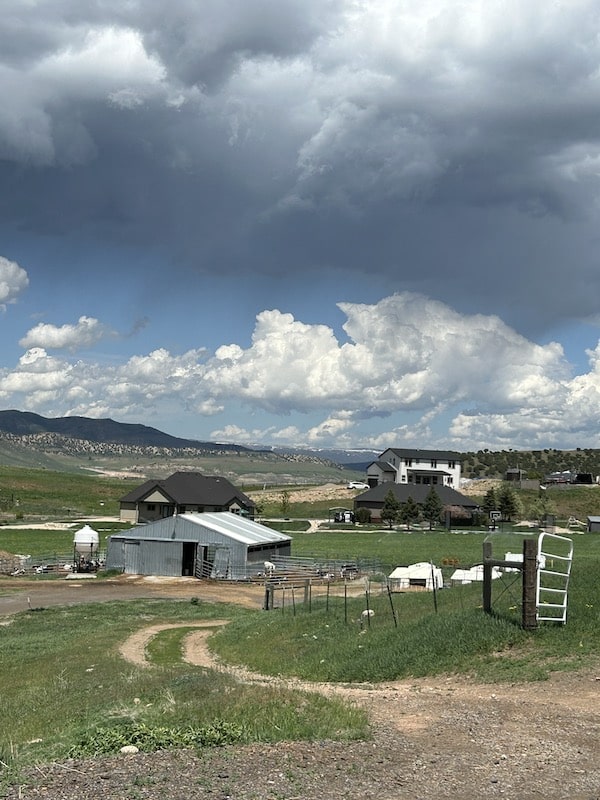“The greatest legal creation of wealth the world has ever known” is an apt description of the tech boom that has occurred over the past 24 years, since the advent of our information, social media, and smartphone revolution. The aftermath has been a low-tech land rush. This wealth has been seeking things to buy to preserve its value. Two of the most popular things elites want to buy are land and homes.
Bill Gates is buying massive tracts of land and farms and ranches as is Amazon founder Jeff Bezos. Gates is now the largest private landholder in the United States. Many other tech billionaires have followed suit, like Tony Hsich, who owned more than a dozen Park City properties when he died. Utah Stories previously reported on how the last orchard in Alpine, Utah finally sold. Today we report that the last dairy in Summit County has finally sold out as well, which I’ll get back to. So why are billionaires buying land?
Land is an excellent investment and a hedge against inflation due to its inherent scarcity. “They aren’t making any more land,” a Moab real estate speculator told me years ago, “So you might as well buy it while you can.” He certainly knew that a day would soon arrive when most Moab residents would be unable to afford land and homes.
Unlike money in the bank, which the Federal Reserve has inflated (increased the quantity of) at the behest of our Treasury Department, land is indeed scarce, so land prices steadily climb and keep climbing until farms and ranches are more valuable than all of the money any farmer could ever hope to earn in four lifetimes.
The best farmland in Utah, that was $2,500 per acre ten years ago, can now fetch as much as $100,000 per acre today. If your family farm consists of 5,000 acres for generations, it was not the land that had value, it was the tremendous input of farmers. The best farmers possess great expertise in animal husbandry, botany, tractor repair, fence repair, barn construction, soil tillage, crop rotation and water conservation. The value of the land was only the result of the expertise and labor of the farmers. Today the pile of money that land could fetch for is so enormous it’s unfathomable to most farmers. Why toil? Why sweat? Why farm? Why work if your farm is worth millions? Why not instead just sell and never work another day in your life?
But then what? Generations of the value added to the land due to the expertise of the farmers all die once that farm is sold.
I visited Brown Dairy in Hoytsville, Utah, which is just 15 minutes east of Park City. The Browns held on the longest of any dairy in the area because even the third-generation kids valued the hard work of raising Holsteins and producing award-winning milk. But with the enormous property-value increases spreading from neighboring Heber and Park City, and the land becoming more scarce in those places, the offers were too hard to pass up, and the Browns finally decided to sell out.

I drive around and I see a big home with a huge garage and a speedboat. This is the new McMansion that has attracted so many to the neighboring Heber Valley. I wave to a man who is a builder. He is Preston Tholen, owner of Preston Tholen Construction.
I ask Tholen, “At what point, like a price per acre, does it not make sense to farm anymore?”
“Oh, we reached that point a long time ago. All of the farmers who have hung on do it because they love it … All of them have a job just so they can farm.”
“There are one or two farmers who do it full time, but they have some subsidy too.” Tholan says he moved into the area 26 years ago. He’s building homes mostly for Utahns. “Some of the farmers are subdividing the land for themselves and their families.”
What about all of the people moving in who don’t want to smell the cows? Tholan says that new owners need to cite an addendum on their closing documents that they “can’t complain about the cows.”
I visited the dairy hoping for an interview, but they have removed phone numbers from their website. I didn’t find anybody on the farm. Likely I missed them because I arrived at lunchtime. I looked around the incredible pasturelands and found a few cows grazing at the feed station.
Over the years they built a dozen outbuildings including a big milking barn as well as smaller barns for calves; barns for calving; barns to separate the pregnant milking cows.
Inside the office, I find awards. I knocked and announced my presence, but still couldn’t find anybody. Then I see an old sign, back from the days when most of their business was out of their farm store with their neighbors. The farm towns in Utah once prided themselves on their self sufficiency and adherence to neighbors all doing business and supporting each other.
They likely produced hundreds, if not thousands of gallons of milk per day. But none of this “value added” makes sense anymore because our country has produced wealthy elites who want to bank their money in farms. But does this make sense?
Is anybody pausing to consider that while farms are bucolic, scenic and pastoral, and perhaps fun to build on top of — that farm is producing food? The last time I checked, the tech industry has still not produced a solution for our need for food.
Beyond Meat went beyond bankrupt. It turns out that nobody wants to eat meat grown in a laboratory/factory. Almond milk is a good substitute for cow’s milk, but have you ever tried almond cheese? Some of us still like mozzarella cheese on our pizza, and real yogurt or real cream in our coffee. We need dairy farmers, and we need them locally!
The paradox of tech-boom wealth creation is that as this wealth spreads throughout county seats and towns, and that money has a major impact on property values in rural economies. It prices farm kids out of having the hope of buying their own land. The net impact is a reduction in real value, rather than an increase. Value is reduced from the perspective of local calories produced and local economic production and farming expertise.
“Wrong!” I know the political leaders/developers will say. “The tax revenue gain from homes and mansions is so much greater than what any farm could pay back to the city.” Of course this is true. But are communities and families better off without farms? If this were an ultimate truth then wouldn’t it make sense to pave over and build on top of every farm in the United States?
The acreage of the Brown’s Dairy has been sold to Ivory Home builders and Larry H. Miller Communities. They plan to build a master-planned community similar to Daybreak. They plan to preserve much of the open-spaces and offer walkable neighborhoods. This sounds great, but I wish they would also preserve the small-scale dairy. The massive factory-farm dairies compared to the small-scale family dairies is like comparing a locomotive to a bicycle. The workings of small-scale family operations are obvious and visible. Factory farms are like machines using animals as cogs in giant operational wheels.
We rely too much on other countries for our food, just as we are relying too much on Taiwan, Indonesia and China for our microchips. Local farms need to be preserved and the only way to preserve them is to constantly seek them out and support buying from the local farmers markets.


